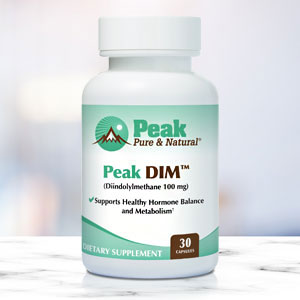Get Easy Health Digest™ in your inbox and don’t miss a thing when you subscribe today. Plus, get the free bonus report, Mother Nature’s Tips, Tricks and Remedies for Cholesterol, Blood Pressure & Blood Sugar as my way of saying welcome to the community!
Testing for hormone imbalances

Your hormonal system is like a symphony orchestra.
All the hormones interact and harmonize in a healthy balance. When they go out of balance, you need proper testing to help set you back in the right direction to better health.
If you start taking hormone supplementation, follow-up testing is particularly important. But when your doctor isn’t well-informed and savvy about all of these tests, you can be at risk.
The more you know, the better your chance of getting your vitality back when hormones go awry…
The Hormone Symphony
The endocrine glands secrete hormones directly into the blood, and these natural chemicals communicate quickly with all the organs (target tissues) of your body.
The endocrine hormones control every part of health and disease. The master gland in your brain, called the hypothalamus, triggers the other hormones from the pituitary gland, thyroid gland and adrenal gland as well as testes in men and ovaries in women.
This cascading and interrelated system is known as the hypothalamic-pituitary-adrenal (HPA) system. (The testicles and ovaries are very much part of this system, even though their initials are omitted from HPA.)
The endocrine glands that release these hormones don’t just communicate with the organs and tissues of your body, they communicate with each other, too.
Let’s look at the various glands and the hormones whose function can be measured (directly or indirectly). These hormones are pertinent to your daily life. You can influence them beneficially through lifestyle measures (exercise, stress reduction and whole food nutrition), nutrient supplementation and by taking hormones.
- The hypothalamus makes gonadotropin-releasing hormone (GnRH), corticotropin-releasing hormone (CRH) and thyrotropin-releasing hormone (TRH).
- The pituitary makes thyroid-stimulating hormone (TSH), luteinizing hormone (LH), adrenocorticotropic hormone (ACTH) and growth hormone (GH).
- The adrenals make cortisol, epinephrine (adrenaline) and aldosterone and the sex hormones dehydroepiandrosterone (DHEA), progesterone, testosterone and the estrogens (E1, E2, E3).
- The ovaries and testes make the estrogens, testosterone and dihydrotestosterone (DHT).
- The thyroid makes T4 and T3 (and reverse T-3, which blocks T3 effectiveness).
- The pancreas makes insulin.
- The pineal gland makes melatonin.
- The liver makes sex hormone-binding globulin (SHBG), insulin-like growth factor (IGF-1), sex hormone metabolites (i.e. harmful estrogens) and binding proteins such as albumin.
All these hormones influence one another, but few doctors understand that. Most medical schools do not yet teach doctors to measure all the hormones together. Manipulation of one hormone affects several others, whether it is through stress reduction, nutrient supplementation or medicating with a hormone.
Testing For Hormones
Hormones can be tested in blood, urine and saliva. There are reasons for using each type of test, depending on your clinical condition and which hormone needs to be measured.
Generally, before hormone supplementation is considered, blood measurements are adequate. However, to do blood tests, you need the ready services of a phlebotomist, which can be challenging. For example, cortisol levels need to be measured at 8 a.m., noon, 4 p.m. and bedtime to analyze the diurnal pattern of secretion. (Yes, this is important!) When you measure hormones, it is much easier for you to spit into a small tube every few hours than to get stuck with a needle four times in a day.
When using transdermal (topical) hormones, salivary testing is more accurate because it reflects tissue levels. Blood tests greatly underestimate this hormone because it mainly stays in the skin and fat tissues.
A 24-hour urine collection is best for measuring sex hormone metabolites and ratios of good-to-bad metabolites. It can also be most useful when serum measurements and salivary measurements are not reliable for a particular hormone (such as growth hormone).
Hormones And Their Measurements
The most reliable tests:
- Growth Hormone: The blood test for IGF-1 is a reliable correlate of growth hormone. Salivary levels are not measurable. Urine can be a 24-hour sample or “spot” urine before and again after a stimulation test (insulin injection or 20 minutes of intense anaerobic exercise).
- Cortisol: Saliva testing is easiest and most reliable at morning, noon, evening and bedtime. Blood testing requires stimulation with an injection of ACTH followed by timed blood draws. Urine (spot or 24-hour collection) can tell overall cortisol but not a diurnal pattern.
- DHEA-S: Blood and saliva tests are both valuable and reliable tests. Urine (spot or 24-hour collection) can show downstream metabolites.
- Thyroid: Blood is the easiest test but can be unreliable. It can check for levels of reverse T3 and autoantibodies that can be useful in addition to TSH, T3 and T4. Saliva is not useful. Urine can be used to check only the T3 level.
- Melatonin: The saliva test shows the diurnal pattern and is reliable. Blood and urine tests are not clinically useful.
- Aldosterone: Blood testing is reliable if you account for salt and water intake at the time of the test. Saliva and urine testing are not clinically useful.
- Progesterone: Saliva and blood testing are accurate. Saliva best reflects the level of free (unbound) hormone and if you are on transdermal progesterone. Blood testing is also accurate and can correlate with binding proteins. It is accurate if you are taking oral progesterone (safe). Urine testing best shows progesterone metabolites.
- Estrogen: Testing is similar to that for progesterone. Saliva correlates best for free (unbound) hormone and if you are on transdermal estrogen (oral estrogen is not safe). Blood testing is also accurate and can correlate with binding proteins; it’s accurate if you are taking oral estrogen. (Plan to change to transdermal.) Urine testing is best to measure estrogen metabolites.
- Testosterone: Testing is similar to that for progesterone. Saliva correlates best for free (unbound) hormone and if you are on transdermal testosterone. Blood testing is also accurate and can correlate with binding proteins; it’s accurate if you are taking oral testosterone (safe). Urine testing is best to measure testosterone and other androgen metabolites.
- Insulin: Blood testing free insulin levels correlates with insulin resistance (prediabetes) if elevated. Saliva and urine tests are not useful.
- GnRH, CRH, TRH, ACTH and LH: All are best tested in blood but are not as clinically useful as the downstream hormones that they stimulate (listed above).
Editor’s note: Are you feeling unusually tired? You may think this is normal aging, but the problem could be your master hormone. When it’s not working, your risk of age-related diseases skyrockets. To reset what many call “the trigger for all disease” and live better, longer, click here to discover The Insulin Factor: How to Repair Your Body’s Master Controller and Conquer Chronic Disease!















